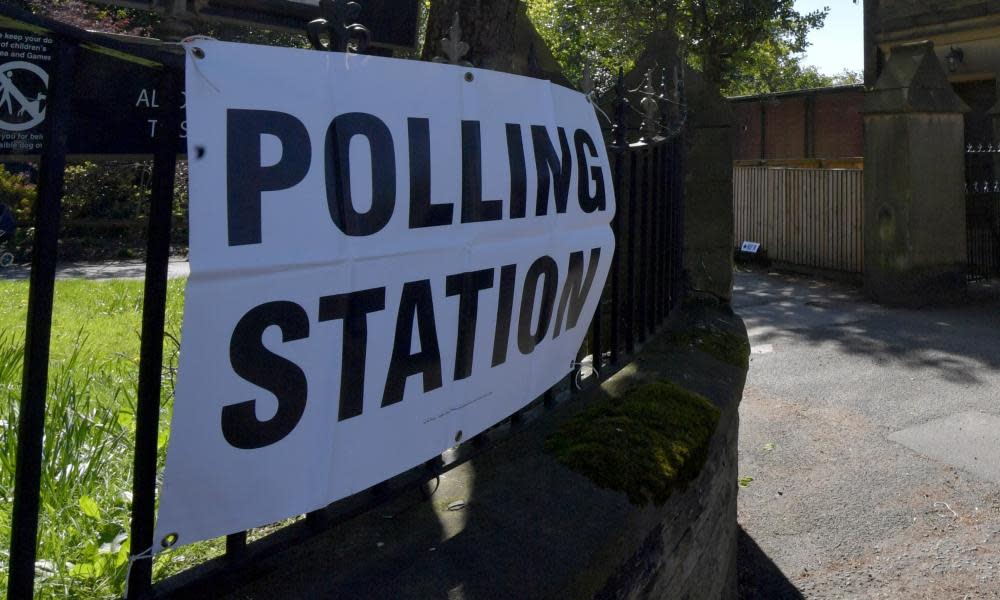UK government accused of 'power grab' over redrawing of boundaries

Labour has accused the government of attempting a power-grab for the executive by pushing through a bill which that strip parliament of its role in approving the imminent redrawing of UK parliamentary boundaries.
The decision to base the new boundaries on the electoral register as it stands in December this year would also greatly skew the process, Labour is arguing, as the chaos caused by coronavirus will depress numbers on electoral rolls, and many students might not be registered.
The parliamentary boundaries bill, which sets the process in motion, will be scrutinised on Tuesday by the Commons for the first time, as it receives its second reading.
The initial plan had been for boundaries to be redrawn through reducing the size of the Commons from 650 seats to 600, but this element has been abandoned, in part due to unrest among Conservative MPs whose seats would have vanished.
The revised plan will keep the 650-seat total, but there still could be considerable changes, with the boundary commissions for England, Scotland, Wales and Northern Ireland making recommendations to even up the constituency populations, given demographic changes over time.
Under previous plans, the commissions’ plans would be scrutinised and voted on by the Commons and Lords. But in a government update in March, titled Strengthening Democracy, the Cabinet Office said this would no longer be the case.
Instead the changes would automatically become law. This would, the Cabinet Office said, “provide certainty that the recommendations of the independent boundary commissions – developed through a robust and impartial process that is open to extensive consultation – would then be implemented without interference”.
The only way MPs could stop this would be to amend the relevant laws to allow a vote.
Labour has previously accused the government of seeking to use the constituency changes to its own advantage, and fears it could use the new power to change boundaries without a vote in the future.
Analysis of the previous, 600-seat system showed that in the 2017 election it would have brought Theresa May an absolute majority, rather than a hung parliament.
The party is also concerned at the use of 1 December as the electoral register on which to gauge the boundaries. Aside from the impact of Covid, Labour says the lack of an election in 2020 would depress numbers.
It is also possible students will not have returned to universities by then, meaning areas with high student populations, which are often strongly pro-Labour, might be under-represented in the new boundaries.
The Cabinet Office is understood to still be examining whether a register from another date might work better, given the impact of coronavirus.
Cat Smith, the shadow Cabinet Office minister whose brief covers voter engagement, said: “The government’s decision to end parliamentary oversight by denying MPs the chance to vote on the boundary review process is yet another attempt to diminish scrutiny and concentrate power in the hands of the executive.
“The new boundaries will be dangerously unrepresentative of the current electorate. Choosing the electoral register of 1 December 2020 as the basis for drawing new boundaries is politically motivated. The December 2020 register will be heavily affected by Covid-19 as local councils will struggle to update electoral registers whilst dealing with this crisis.”
Chloe Smith, the Cabinet Office minister responsible for constitutional matters, said the bill “will strengthen the independence of the boundary review process, to prevent yet more delays and interference in updating our parliamentary constituencies - which are now 20 years old”.
She said:“Parliament still has the opportunity to scrutinise our plans and parliament must still collectively decide to approve them.
“We are, however, already considering potential alternatives to the data used for the next boundary review, to reflect the practical consequences of the coronavirus pandemic. We have and continue to engage with political parties and election administrators, and will update parliament in due course.”


